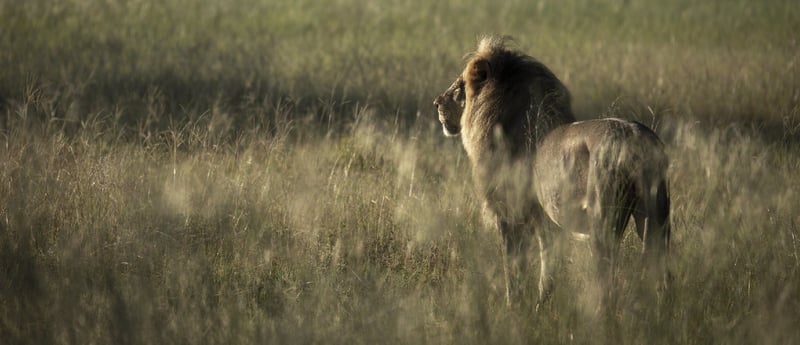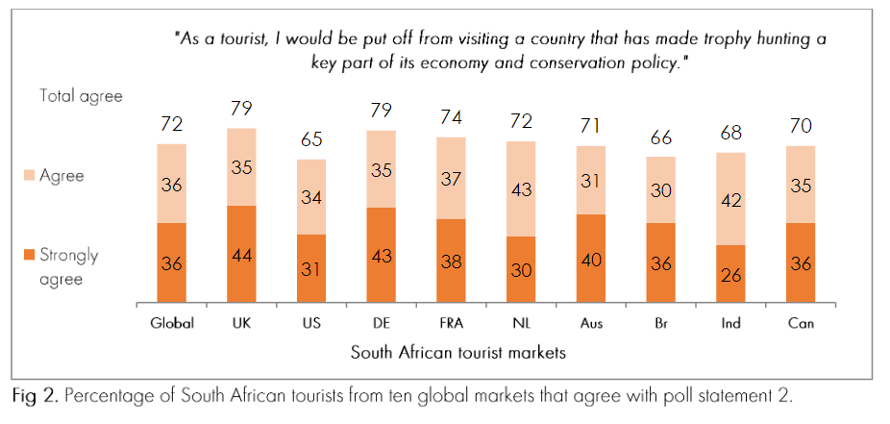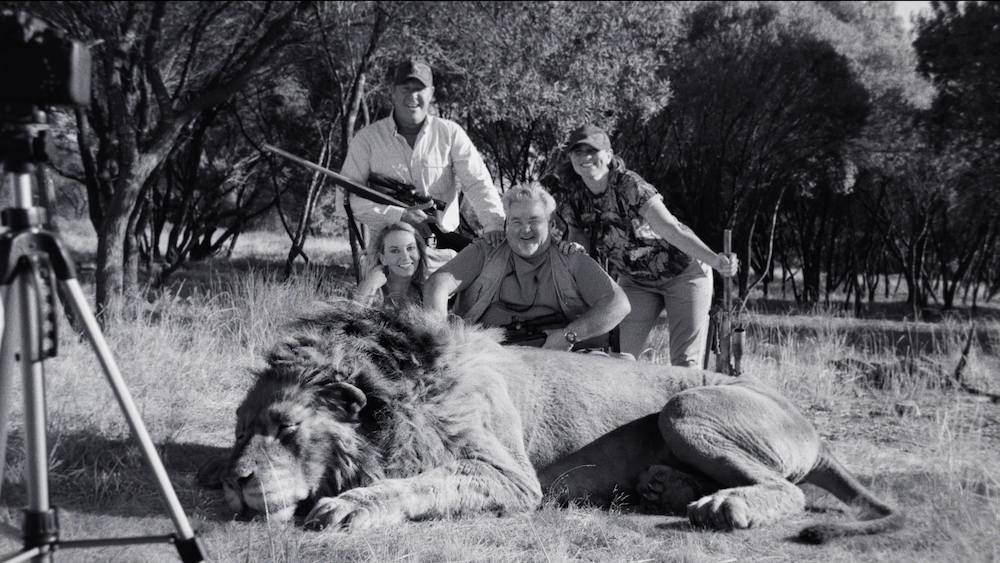
Trophy hunting puts South Africa’s tourism industry in peril
News
Research reveals South African citizens, and international, and UK tourists want to see an end to trophy hunting.
World Lion Day
On the occasion of World Lion Day World Animal Protection is asking all tourists to South Africa to stay away from any activities related to trophy hunting. Earlier, in India, World Animal Protection had raised awareness on this destructive activity by highlighting the efforts of school children who created a video on trophy hunting:
Trophy hunting is outdated and inhumane and will never be an acceptable approach to wildlife conservation. Africa’s wildlife has the right to wildlife. They do not belong to us, they belong in the wild. Therefore, we must respect and protect them.
Trophy Hunting
The life of a wild animal is worth so much more than the trophy it is reduced to. Trophy hunting and captive lion breeding treat wild animals as mere resources to be exploited for profit and entertainment, not respecting them as the sentient beings they are.
Don't Kill for Fun
The Public's Perspective on Trophy Hunting in South Africa
As South Africa opens up consultation on its draft Conservation and Sustainable Use of South Africa’s Biodiversity white paper, we have released new polling data on one of the worst examples of exploitation of Africa’s iconic wildlife: Trophy Hunting.
World Animal Protection commissioned research into public attitudes towards trophy hunting, surveying 10,900 people from around the world, including international tourists from countries who most frequently visit South Africa and South African citizens. It revealed universally strong opposition to the blood sport and a desire to finance the protection of the nation’s iconic wildlife through non-lethal alternatives such as responsible wildlife tourism.
The key findings from the research revealed...
- 84% of international and 88% of UK tourists agreed that the South African government should prioritise wildlife-friendly tourism over trophy hunting.
- 74% of international and 79% of UK tourists agreed that making trophy hunting a key pillar of policy will damage South Africa’s reputation, and 72% (UK 77%) would be put off from visiting the country altogether.
- 7 in 10 South African citizens agree their country would be a more attractive tourist destination if they banned trophy hunting.
- Three-quarters (74%) of South African citizens agree that trophy hunting is unacceptable when wildlife-friendly tourism alternatives have not been fully utilised.
Our new poll reveals worldwide condemnation of the cruel blood ‘sport’ and unequivocal support for prioritising wildlife-friendly tourism.

Conservation and Sustainable Use of South Africa’s Biodiversity
The draft white paper from the Department of Forestry, Fisheries and the Environment seeks to - create a prosperous nation living in harmony with nature where biodiversity is conserved for present and future generations – this is a great start.
Still, it falls short of clarity or tangible commitments to end the global commercial wildlife trade, including:
- Trophy Hunting
- Captive Lion Breeding
- And Big Cats for traditional medicine

Hunting African Animals is cruel and unsustainable
We should be protecting every wild animal – not trading, shooting, or breeding them in captivity – and promoting humane and responsible wildlife-friendly tourism, which is vastly underutilised.
Rather than turning a blind eye to the horrors of trophy hunting, and exploiting wildlife as products, let’s find wildlife-friendly alternatives that can provide income for communities and incentives to protect animals without killing for so-called sport.
Africa’s wildlife has the right to wildlife. They do not belong to us, they belong in the wild. Therefore, we must respect and protect them.
